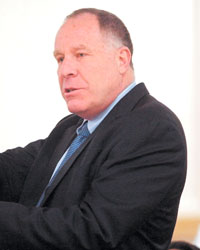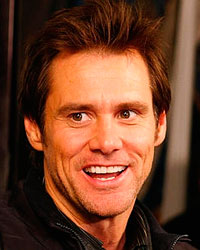There is a stigma against mental illness in our culture.
Many people completely avoid seeking psychiatric treatment because they’re afraid of getting labeled with a diagnosis, and everything they associate with being “mentally ill.”
It’s unfortunate because having a psychiatric illness doesn’t mean you can’t go on to have a fulfilling and productive life. It’s almost never is the most interesting or important thing about a person. It doesn’t define you.
Thinking about this issue inspired me to write about some of the famous people who have been diagnosed with mental illness, and showcase some of their accomplishments – some of them you could say succeeded because if their psychiatric illness, not in spite of it.
1. Michael Phelps / ADHD

Phelps struggled in school, but the discipline he lacked in classes he cultivated in the pool. In sixth grade, he was able to stop taking his stimulant medication and continue thriving, using the structure that swimming provided to harness his focus.
I’d say the kindergarten teacher was proven wrong when Michael Phelps channeled tremendous focus to shatter seven world records and win eight gold metals at the 2008 Beijing Olympics.
The Lesson: Struggle with finding focus? It might be that you haven’t found something worth your attention. People who have difficulty in classes or cubicles often thrive when they can use their bodies and minds more spontaneously. So get outside and channel your energy and creativity into a venture where you can flourish.
2. Winston Churchill / Bipolar Disorder

“Had he been a stable and equable man, he could never have inspired the nation. In 1940, when all the odds were against Britain, a leader of sober judgment might well have concluded that we were finished.”
During the war effort against Germany, Churchill channeled his heightened energy, grandiosity, and aggressiveness into being a strong and fearless leader for his nation.
The Lesson: Sometimes a little bit of delusional grandeur can do you good. The more powerful you believe you are, the more likely you are to be right.
3. Sylvia Plath / Depression

While Plath died tragically, during her life she channeled her raw and turbulent emotions into haunting poetry. Lady Lazarus in particular beautifully and sadly tells the story of her depression and frequent suicidal thoughts. I also get chills every time I read Daddy.
She inspired the term “The Plath Effect,” which describes the pattern of intensely creative and talented female writers who also struggled with mental illness (such as Virgina Woolf, Sarah Teasdale and Anne Sexton). Whether Plath’s creativity sprung from her crippling depression or not, she certainly translated her suffering into touching art.
The Lesson: Sometimes pain and suffering can be the source of inspiring creativity and imagination. If you feel it, get it out. Say it, speak it, write it, tell it – you may have beautiful art inside of you waiting to get out.
4. Charles “Buddy” Bolden / Schizophrenia

What you might not know is that Bolden had schizophrenia, a mental disorder characterized by paranoia, hallucinations and disorganized thought and behavior. It has been surmised that his disorganized pattern of thought might have in fact inspired his improvisational playing style, leading to the creation of the jazz movement.
The Lesson: Unique minds create unique discoveries. If a man who suffered from one of the most devastating mental illnesses could use his unique way of thinking to inspire an entire generation of music, what straw in your life do you have that you could spin into gold?
5. Paul Orfalea / ADHD, Dyslexia

In an interview, Orfalea said “My learning disability gave me certain advantages, because I was able to live in the moment and capitalize on the opportunities I spotted.” He went on, “With ADD, you’re curious. You’re eyes believe what they see. Your ears believe what others say. I learned to trust my eyes.”
The Lesson: If you have trouble conforming to the rest of the world, maybe you should be treading your own path instead. Disadvantages in certain systems (i.e. school) may prove to be advantages in others (i.e. the entrepreneurial world).
6. Jim Carrey / Depression

Carrey has talked about how he learned his craft of comedy through desperation – at first to make his sick mother laugh, and then to help support his poverty-stricken family. His connection to his deepest emotions has given his the courage to push forward in his art – for example, making the indie drama Eternal Sunshine for the Spotless Mind even when everyone was telling him to “just do comedy.”
The Lesson: Sometimes the burden of being a deeply reflective person is the tendency to wander toward depression. However, with reflection comes a deeper understanding of human nature, which can lead to the ability to connect deeply with others and positively impact their lives.
7. Richard Branson / ADHD

In one interview Branson said,”If I’m not interested in something, I don’t grasp it.”He talked about running multi-billion dollar companies but not understanding the difference between net and gross income.
I think this is something a lot of people with ADHD can identify with. They have trouble sitting through routine classes or work, but light up when they have a unique problem or challenge in front of them.
The Lesson: If you have unique abilities and skills, don’t feel like you need to conform to what everyone else is good at to be successful in your work. Any accountant can balance books – it takes a leader to become a CEO. Hire people to do the jobs you’re not good at and spend your time channeling your creativity in a way that will be the most impactful.
There you have it! Any famous people with mental illness you’d want to add to the list? There are many more, and it was hard to choose just a handful. Let me know what you think in the comments!


Very nice!!
Who can forget Winston Churchill and his funny yet inspirational quotes. especially when he put down Lady Astor
“I may be drunk, Miss, but in the morning I will be sober and you will still be ugly.
One person I would like to mention if I may is:
Professor Temple Grandin who was diagnosed with HFA.
My favorite line is when she was asked about her broken squeeze box:
“It broke two years ago, and I never got around to fixing it. I’m into hugging people now.”
https://en.wikipedia.org/wiki/Temple_Grandin
I like that quote! Temple Grandin is a great addition, and her story fits right along with the theme of people whose mental illnesses gave them skills that helped them be more successful. Thanks for the comment!
Here is another interesting article, perhaps you might know her. She is a professor at USC
Elyn Saks
https://www.time.com/time/arts/article/0,8599,1656592,00.html
Another great addition – she came and spoke to my medical school class back when I was at USC.
I don’t believe Autism is a mental illness is it? Wouldn’t you say it is a genetic disposition of certain areas of the brain to act in certain ways. Are we trying to “cure” autism or work with those who have it to be more successful in the non-autistic world?
Winston Churchill was also a junkie. He used to place morphine suppositories up his bum.
I remember that story – a little factoid left out of a lot of the history books!
A great bit of inspiration for my morning. Thank you.
Glad you liked the post Alex!
Wow, great list! I’m currently trying to write a piece about similar topics and this has really helped me get a good start of ideas!
Thanks Michael, glad you found it helpful!
I can’t thank you enough for doing this. I was diagnosed 20 years ago, schizophrenia with sever depression. I still have my struggles but have a full vibrant life. Education and the gospel and the body of Christ and my christian counselor with my family has been the answer. The greatest thing that impacted me was the love of God. After two suicidal attempts while having delusions and illusions. I am in full remission. There is great hope for those with mental disorders. Thank you for not running from us but encouraging. We serve an awesome God and He uses people like you to restore our souls and set us free. I wrote some on https://www.desperatedelight.blogspot.com about this very thing.
Forgot to mention my awesome doctor. That I am married to a former college football coach now retired farmer. I love writing, photography, hiking, riding horses, theology, giving the gospel in mentoring, all relationships with God and people, worshiping God and thinking deep. God has given me underserved life abundant.
Hi Deborah, thanks so much for you comment, and I’m happy the article resonated with you 🙂
Hi Elana, I appreciate your article above. I am a very driven, motivated and passionate entrepreneur in both the business coaching/entrepreneurship arena, as well as real estate. I plan to be on your list in the future and to be a change agent for mental illness and the stigma that it continues to have…ya see, I was just diagnosed with Bipolar about a week ago, but that hasn’t stopped me from having started multiple business. I see Richard Branson as a hero of mine. If there is anything you need from me I would love to connect. All the best!